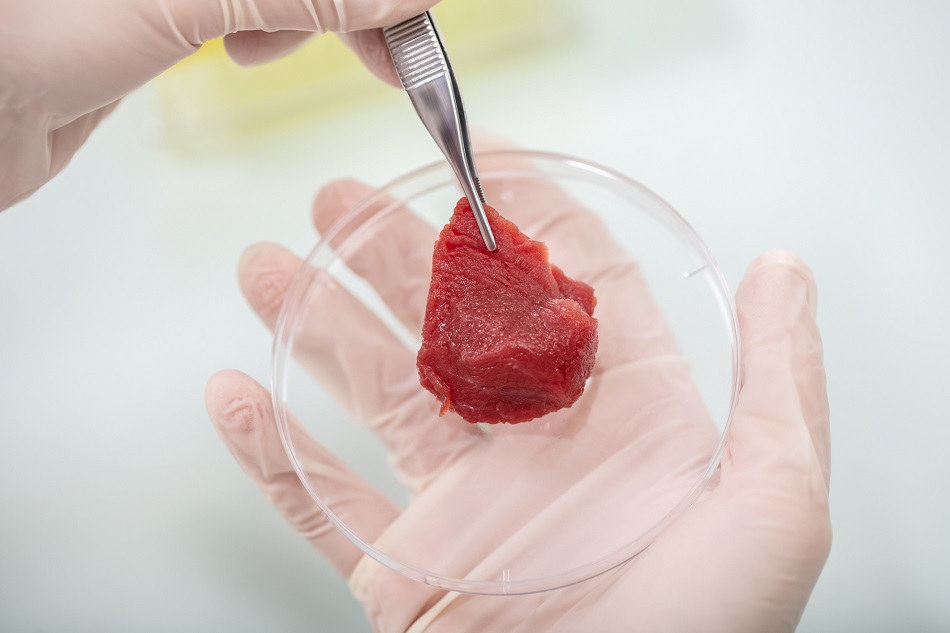Lab-grown meat — “also known as cultured, cultivated, cell-based, or clean meat,” per The Humane League — is fast getting closer to your dining table. Made by harvesting cells from a living animal (using anesthesia) and cultivating them to form pieces of meat that look and taste a lot like the steaks, hamburgers, and fish fillets we’ve been eating for generations, lab-grown meat does not require animals to be reared, confined, or slaughtered.

This means that scientists can harvest stem cells from a cow, place them in a petri dish, provide it with nutrients like amino acids and carbohydrates, and end up with beef, explains GCFGlobal.
It may seem futuristic, but lab-grown meat got FDA approval this past fall, meaning it will soon become commonplace to purchase it from your local grocery. However, like all scientific breakthroughs that touch on sensitive areas of human life like food and cultural traditions, lab-grown meat also requires other forms of approval to go mainstream: that from social, cultural, and religious institutions.

Thanks to a recent declaration by the Chief Rabbi of Israel, one lab-grown meat company’s products have become the first of their kind to be deemed kosher, and therefore fit for consumption under Jewish law.








